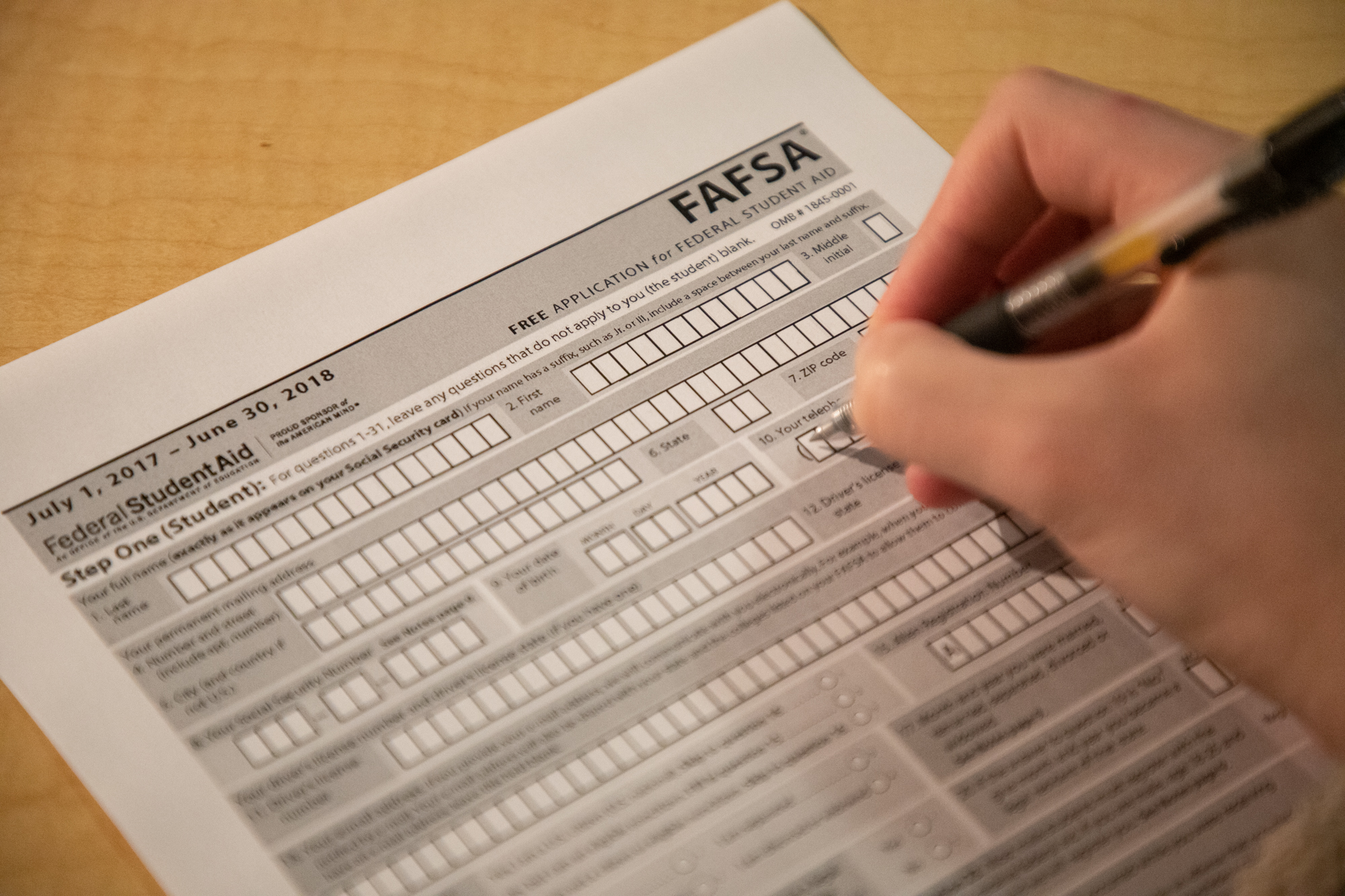Views expressed in opinion columns are the author’s own.
President Joe Biden’s rhetoric has been a clear shift from the blatantly inflammatory language former President Donald Trump used daily. Some of Biden’s actions, however, seem to contradict his message of hope and renewal. From keeping migrant children in inhumane conditions to firing some of his own staffers for their past marijuana use, many of the Biden administration’s recent policy decisions have felt disappointingly conservative for the candidate who was advertised as the next FDR. While the president’s Twitter may be less chaotic, there are still deep systemic issues being overshadowed and outright ignored. Auditing the FAFSA materials of poor Black and brown students is one of them.
In February, The Washington Post reported the Education Department has been disproportionately selecting “students from majority Black and Latino neighborhoods to provide further proof that the information on their financial aid application is accurate.” This so-called random verification, aimed to protect the “integrity” of the financial aid system, has audited households that qualify for Pell grants — often where poorer Black and brown students live — at six times the rate of the whiter, wealthier households who don’t qualify. Furthermore, Black communities in general were audited at a rate 1.8 times higher than majority white communities.
Applying for financial aid is already an extremely confusing and convoluted process, especially for Black and brown students who are already struggling to find ways to pay their way through school. The audit adds even more pressure by forcing these students to constantly prove their eligibility for aid to the federal government. If students don’t comply, they stand to lose access to grants, funding and loans, further jeopardizing their college educations. As the Scholarship Foundation of St. Louis advising director Teresa Steinkamp put it, “We ask students — often those most vulnerable and marginalized by the inequities in our systems — to prove over and over again they need the money for college. And once they navigate these complicated barriers, the aid is often insufficient to cover the need they’ve verified they have.”
This is exactly what Black people mean when we say racism is a systemic issue. It seems the only reason these students are being forced to go through extra steps in this mind-numbing process is because they are poor people of color. Wealthy students who aren’t worried about funding likely will never lose sleep over whether or not the Education Department will force them to repeatedly prove how much money their parents make or how many people they live with. This is a predatory policy that only serves to punish students for being poor. Imagine losing your scholarships, grants and access to class registration because the Education Department took weeks to determine you weren’t lying about the information you submitted. These are all things that can make or break the college experience. Financial aid can translate into funds for gas money, textbooks or child care, among other things. This process is even more stressful for first-generation students, who are often left on their own to figure out how to apply for financial aid. University of Richmond senior Jesse Amankwaah, who’s been selected three times for FAFSA verification as an undergraduate, put it this way:
“The precarious circumstance of living in an immigrant family meant that some information felt sensitive … it’s really even the simple questions like, ‘Who do you live with?’ and ‘How much money do you all make?’ It’s not something we talk about until the school asks. And seeing it all laid out on paper can be rather disheartening.”
This auditing process underscores two things. First, it’s clear the federal government is okay with carrying out racist, classist policies that hurt young people’s career aspirations for no apparent reason. More importantly though, the fact that this is even an issue presents a strong argument for why college tuition should be free. Having to drop out of college over a FAFSA audit is very dumb, but taking out hundreds of thousands of dollars in loans just to pay for a bachelor’s degree is even dumber — especially when universities make their students take random, unrelated “general education” classes to make even more money off of them. This takes me back to the point I made earlier — where is the Biden administration? One would think an issue as blatant and persistent as this would get the attention of the new president, especially one who’s trying to distance himself from Trump.
Unfortunately, it doesn’t look like there’s much to be hopeful for. While Biden and Vice President Kamala Harris have talked a lot about making college tuition free, the only indication of anything like that has been Biden’s proposal to make two-year community colleges free, a far cry from the tuition-free, debt-free plans for all public colleges and universities proposed by Sens. Bernie Sanders and Elizabeth Warren. Even more disheartening, Biden has refused to cancel more than $10,000 of student debt while his Democratic Senate colleagues asked for $50,000. Regardless of the amount, the president could sign an executive order to cancel all of it, and hasn’t. The same logic applies to these so-called random, yet very racist FAFSA audits that are derailing the educations of those already marginalized.
Malcolm Ferguson is a senior English and government and politics major. He can be reached at mferguso@terpmail.umd.edu.



